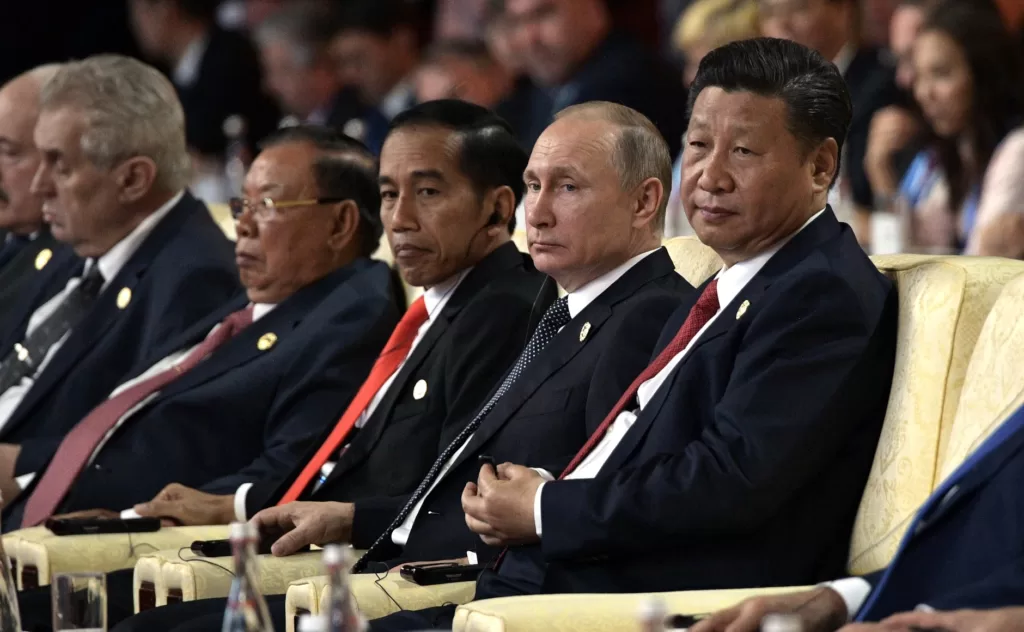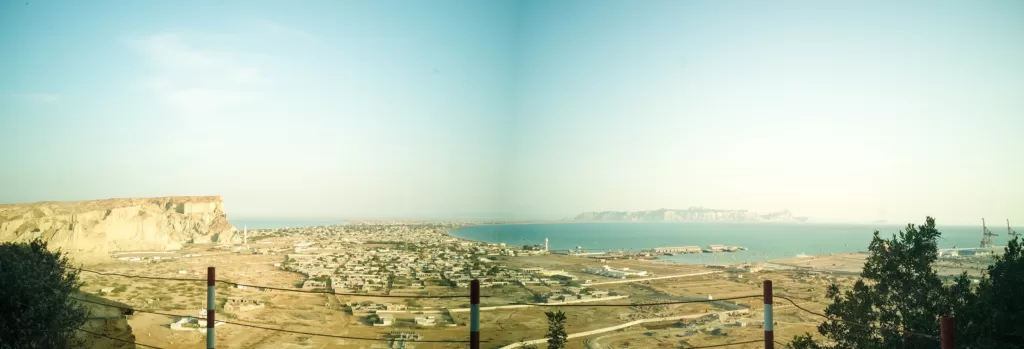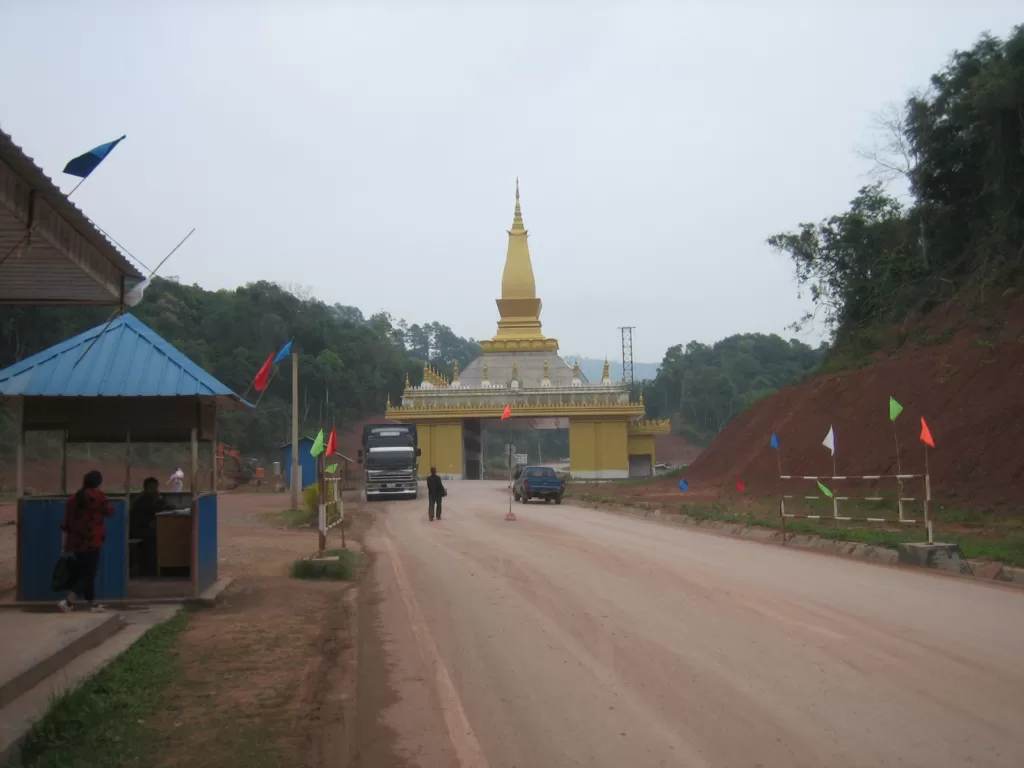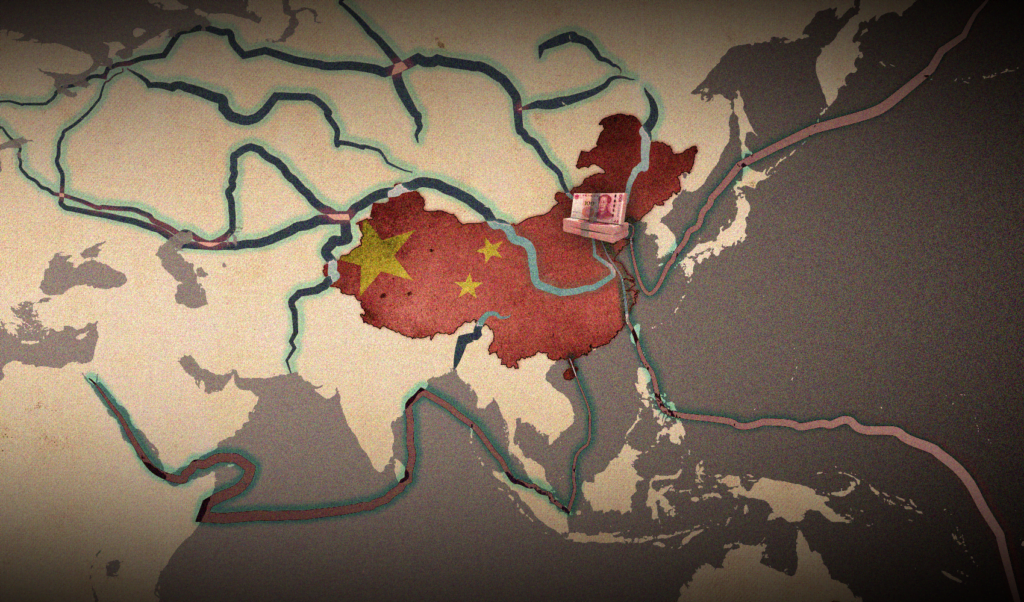Building infrastructure is President Joko Widodo's priority. China’s lending filled a funding gap, but can Indonesia avoid a debt trap?
 China has become Indonesia’s largest trading partner and a significant investor in the country. : Belt and Road international forum 2017. The Russian Presidential Press and Information Office, Wikimedia Commons Wikimedia Commons
China has become Indonesia’s largest trading partner and a significant investor in the country. : Belt and Road international forum 2017. The Russian Presidential Press and Information Office, Wikimedia Commons Wikimedia Commons
Building infrastructure is President Joko Widodo’s priority. China’s lending filled a funding gap, but can Indonesia avoid a debt trap?
In an unprecedented move, in May 2023 former Indonesian Vice President Jusuf Kalla spoke out against the sitting administration’s willingness to let China dominate the Indonesian economy. Kalla claimed that the country’s debt had bloated to 1,000 trillion rupiah or USD$67 billion, although this figure is at odds with government data.
China’s engagement with the Indonesian economy is tied to the Belt and Road Initiative (BRI), a 2013 project that was embraced by Indonesian President Joko “Jokowi” Widodo. Widodo recognised a natural fit between Indonesia’s untapped marine resources and China’s enthusiasm to expand its business in the region.
Indonesia knows that cooperation with China is important, but its engagement with Belt and Road is a measured play to protect its interests and maintain sovereignty.
China and Indonesia have strong bilateral ties. After a history of strained diplomatic relations, both countries re-established official ties in 1990. Since then, they have strengthened the relationship, signing a strategic partnership agreement in 2005 and a comprehensive strategic partnership in 2013.
China has become Indonesia’s largest trading partner and a significant investor in the country, fostering closer economic cooperation and becoming one of Indonesia’s top three foreign investors.
As an emerging global economic force, Indonesia’s participation in the BRI aligns with its aspirations for continued development and regional leadership.
Indonesia’s membership in the G20, its involvement in the China-ASEAN free trade scheme and its participation in the Asian Infrastructure Investment Bank strengthens its position.
With their respective economic strengths, China and Indonesia have valuable assets for increasing cooperation and chasing shared interests through Belt and Road.
The Indonesian government’s commitment to speeding up infrastructure development lines up well with the goals of the BRI. Indonesia needs investment in many sectors: better transportation networks, more roads, airports, ports and other public facilities that could help improve logistical efficiency.
The BRI’s emphasis on regional connectivity and economic cooperation aligns with Indonesia’s goals and presents opportunities for everyone to win. Leveraging their strong bilateral relations and economic prowess, China and Indonesia can work together to drive sustainable development and prosperity within the framework of Belt and Road.
While Indonesia’s economy has grown significantly, red tape and bureaucracy continue to hinder progress. The government’s efforts to reform bureaucracy have had mixed results despite the passing of several economic policy packages aimed at streamlining regulations and law enforcement.
The USD$6.2 billion high-speed railway project connecting Jakarta to Bandung is an example of the challenges posed by Indonesian bureaucracy. The project commenced in 2015 but land clearance issues and regulatory hurdles have left it suspended. After many adjustments, especially on budget issues, the limited operation of the project is scheduled for August 2023.
By prioritising its maritime strength, Indonesia can align its development goals with Chinese President Xi Jinping’s vision of advancing his country’s economic interests through the sea.
Building port infrastructure and improving inter-port connectivity would benefit both countries and facilitate trade activities. Widodo’s initiatives — such the Global Maritime Fulcrum — align well with China’s emphasis on sea-based cooperation, creating collaborative opportunities.
However, China’s BRI comes with risks as well as opportunities. Concerns arise when recipient countries struggle to repay their loans from China, leading to a loss of control over the infrastructure projects. Indonesia’s increased debt under Widodo’s administration highlights the need for caution in managing financial obligations tied to the BRI.
The influx of Chinese workers into Indonesia is another situation worth monitoring. While Chinese labour and technology can contribute to project efficiency, the availability of local job opportunities and potential illegal labour practices create social tensions.
Stricter controls and enforcement mechanisms to ensure compliance with labour laws may help maintain social order.
Indonesians have varied views on China and its ambitious BRI according to a study conducted by the Centre for Strategic and International Studies (CSIS) in Jakarta. The perception of China among Indonesian bureaucrats and academics has been mostly negative, with concerns about China’s economic power and its potential threat to Indonesia’s national interests. Suspicion and a lack of trust have shaped perceptions from people who question China’s true intentions in Indonesia.
But some Indonesians support the initiative, seeing an alignment with Indonesia’s own maritime ambitions. Others were pessimistic, fearing that the Belt and Road would further strengthen China’s dominance over Indonesia in economic competition. A significant number adopted a cautious “wait-and-see” approach towards the initiative.
The study also highlighted a lack of awareness among Indonesians regarding China’s geopolitical and geo economic influence. A survey conducted by the Centre of Chinese Studies found that many Indonesians were familiar with traditional medicine, culture, and communism when asked about their knowledge of China. Respondents lacked awareness of China’s economic and military rise.
The BRI holds potential for infrastructure development which aligns with Indonesia’s national development plan, aimed at promoting the welfare of its people. Some commentators believe Indonesia is the ASEAN country poised to benefit most from the initiative, with over USD$87 billion allocated to infrastructure projects. The challenge lies in aligning Indonesia’s development strategy with Belt and Road to realise mutual interests.
To maximise the benefits and address potential challenges, Indonesia must balance its national development goals with the BRI. Environmental conservation considerations should be integrated into infrastructure projects, especially regarding sustainable energy and clean water supply.
The BRI has its problems, but Indonesian democracy protects against adverse consequences. As long as Indonesia maintains its democratic checks and balances, it will continue to pursue the right approach to the initiative. Other nations have learnt the hard way and Indonesia should not underestimate its own capabilities.
Nur Rachmat Yuliantoro is an Associate Professor and the Head of Department of International Relations at Universitas Gadjah Mada in Yogyakarta, Indonesia. His main areas of interest are China’s international relations, American foreign policy, and political corruption. He declared no conflict of interest.
Twitter: @masrachmat
Originally published under Creative Commons by 360info™.










